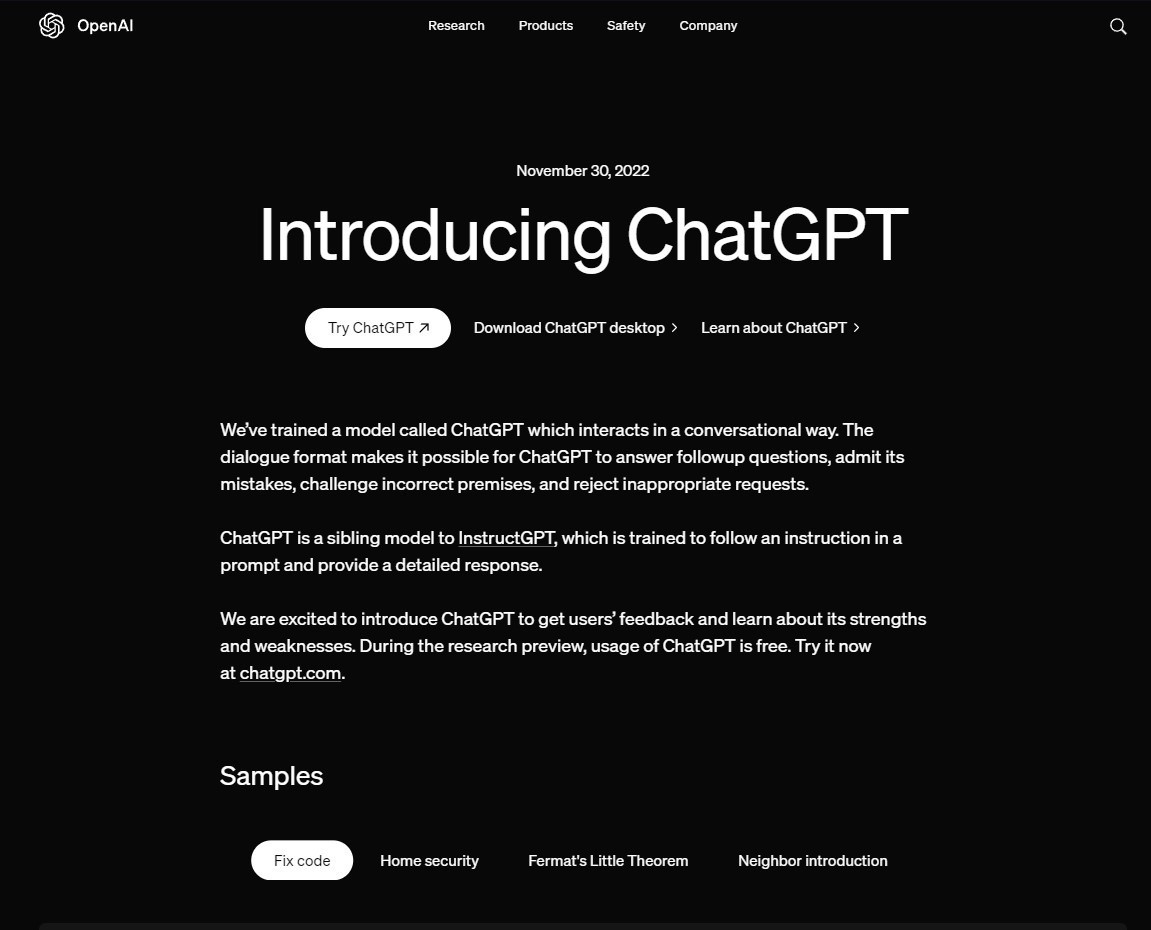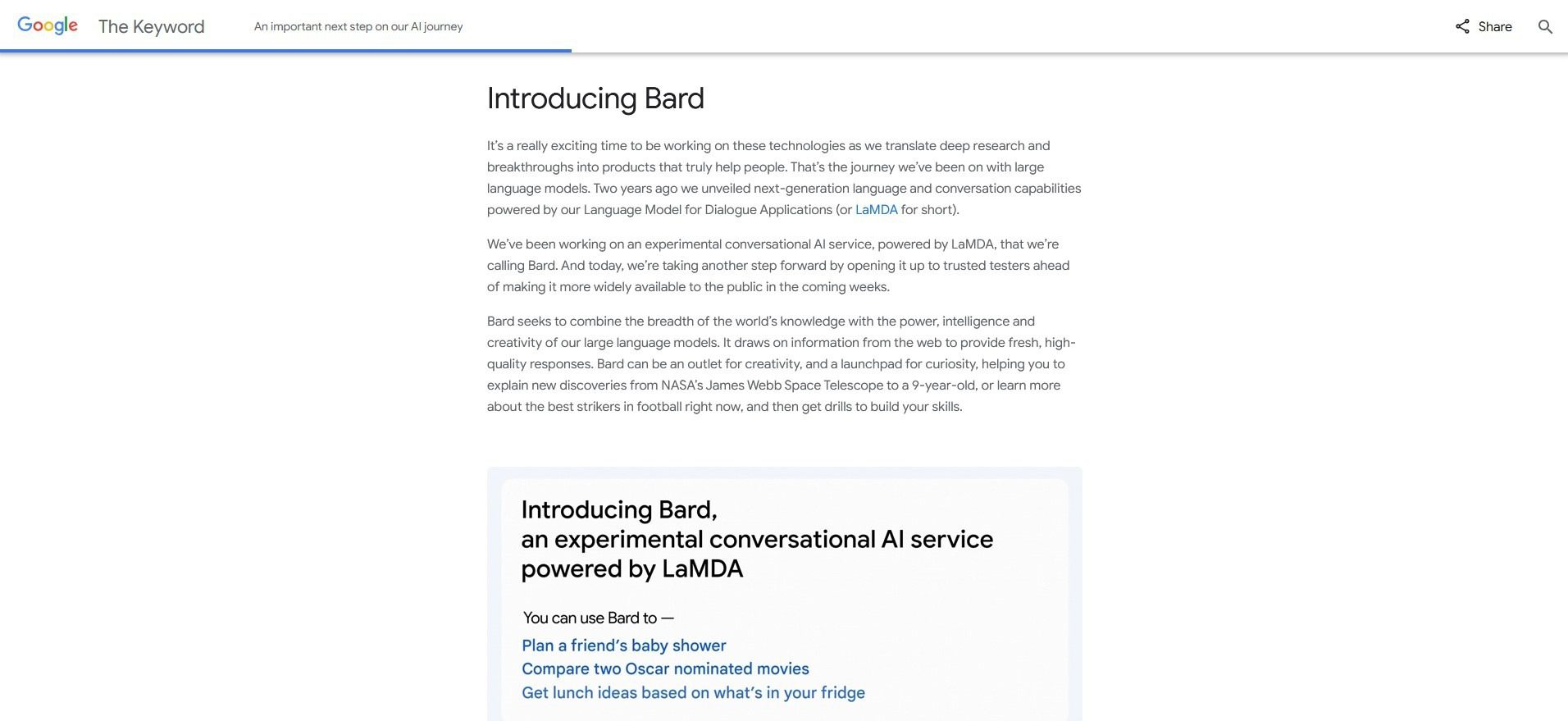This detailed comparison between ChatGPT and Google Bard is part of our AI Tools Comparison Series, where we explore the best tools shaping the AI landscape.
Introduction – ChatGPT vs Google Bard
Table of Contents
- 1 Introduction – ChatGPT vs Google Bard
- 1.1 Introducing ChatGPT: Leading the Conversational AI Space
- 1.2 Introducing Google Bard: Google’s Answer to Real-Time Conversational AI
- 1.3 Key Differences – ChatGPT vs Google Bard
- 1.4 Strengths and Weaknesses – ChatGPT vs Google Bard
- 1.5 Practical Applications for All Cases – ChatGPT vs Google Bard
- 1.6 ❓ FAQs – ChatGPT vs Google Bard
- 1.7 Conclusion and Summary – ChatGPT vs Google Bard
- 1.8 📚 Related Posts You May Be Interested In
- 2 Resources – ChatGPT vs Google Barn:
I have previously compared ChatGPT with 11 powerful AI tools, including Google Bard. Now, we’ll dig deeper and compare just these two.
ChatGPT, developed by OpenAI, and Google Bard, powered by Google’s LaMDA model, are two prominent AI tools.
They process human-like responses but differ in datasets, integration, and applications. Understanding their capabilities can maximize your productivity and efficiency.
Artificial intelligence tools like ChatGPT and Google Bard are revolutionizing our interactions with technology.
Both are cutting-edge generative AI tools, but they have unique strengths, applications, and features that make them suitable for different purposes.
This article explores their differences, strengths, weaknesses, and practical applications to help you decide which AI suits your needs.
Introducing ChatGPT: Leading the Conversational AI Space
Thanks to its popularity and versatility, ChatGPT, developed by OpenAI, has become synonymous with conversational AI.
Leveraging the GPT-4 architecture, it can answer questions, provide detailed explanations, and even engage in creative writing tasks such as storytelling or script generation.
It can also solve technical tasks such as writing code, which makes it a favorite among developers and technologists.
It can be argued that it all depends on the ingenuity of the person asking ChatGPT.
A crucial aspect is ChatGPT’s ability to maintain context during long conversations and thus retain a certain amount of memory.
It is imperfect in all scenarios, but its ability to generate human dialogue in different tones and styles makes it highly adaptable to casual and professional environments.
Introducing Google Bard: Google’s Answer to Real-Time Conversational AI
Google Bard AI harnesses the power of real-time information directly from Google Search.
This allows Bard to provide up-to-date facts, making it highly reliable for users looking for fresh, factual data.
Unlike other AI tools that rely on pre-existing and collected data, Bard answers queries using the world’s largest search engine.
Bard’s integration with Google’s vast ecosystem gives it a unique advantage in fast searches, fact-checking, and real-time event tracking.
It’s a conversational AI that provides up-to-date information, making it the best choice for users who prefer real-time data over creative or technical output.
Key Differences – ChatGPT vs Google Bard
1. Foundation Models
- ChatGPT: Trained using OpenAI’s GPT-4 (or GPT-3.5) language models, excels in text generation, code writing, and conversational context understanding.
- Google Bard: Based on LaMDA (Language Model for Dialogue Applications), it specializes in real-time internet retrieval for accurate, up-to-date information.
2. Data Training and Updates
- ChatGPT: Limited to data up to a specific cutoff year (e.g., 2021 for GPT-3.5/4), ideal for historical or pre-cutoff queries.
- Google Bard: Constantly updated, retrieving data in real-time, making it suitable for current trends and events.
3. Applications and Use Cases
| Feature | ChatGPT | Google Bard |
|---|---|---|
| Creativity | Excels in writing and imagination | Strong but less versatile |
| Real-Time Info | Lacks internet-based updates | Provides current insights |
| Language Support | Broad language capabilities | Multilingual with real-time scope |
4. Integration
- ChatGPT: Integrates with apps like Zapier, Slack, and developer APIs for custom solutions. Learn more about Zapier and Slack here, in the Resources below.
- Google Bard: Embedded into Google Workspace apps, enhancing productivity with tools like Google Docs and Sheets.
Strengths and Weaknesses – ChatGPT vs Google Bard
ChatGPT
Strengths:
- Superior conversational depth.
- Proficient in creative writing and coding.
Weaknesses: - Limited knowledge after cutoff dates.
Google Bard
Strengths:
- Real-time data.
- Seamless integration with Google apps.
Weaknesses: - May sacrifice conversational nuance for data accuracy.
Practical Applications for All Cases – ChatGPT vs Google Bard
For Developers
- ChatGPT: Ideal for debugging, coding help, and writing snippets.
- Google Bard: Provides the latest industry standards and tools.
For Writers and Content Creators
- ChatGPT: Great for brainstorming, creating blog outlines, and drafting articles.
- Google Bard: Useful for SEO optimization and current events research.
❓ FAQs – ChatGPT vs Google Bard
Which is better for coding?
ChatGPT, due to its advanced understanding of programming languages.
Can both AIs handle real-time information?
Only Google Bard can fetch real-time information.
Which AI tool is more user-friendly?
Both offer simple interfaces, but Bard is more intuitive for Google users.
Do they support multiple languages?
Yes, both offer multilingual capabilities.
Which AI tool is more reliable?
ChatGPT is reliable for historical data, while Bard excels in real-time queries.
What’s the cost difference?
ChatGPT offers free and paid plans, while Bard is currently free.
Which is better for SEO content creation?
Bard provides real-time updates for SEO; ChatGPT offers deep content insights.
Can they replace human creativity?
They complement but don’t replace human creativity.
Are they secure to use?
Both follow industry standards for data privacy.
Which is better for long-term projects?
ChatGPT’s consistency is ideal for long-term planning, while Bard suits evolving needs.
Conclusion and Summary – ChatGPT vs Google Bard
ChatGPT and Google Bard are exceptional AI tools, each excelling in specific areas. ChatGPT offers profound conversational depth and creative capabilities, making it ideal for developers and writers.
Google Bard’s real-time internet access and seamless integration with Google’s ecosystem make it perfect for business users and researchers.
Choose ChatGPT for creative projects and in-depth conversations, while Bard is better for current, factual data and collaborative environments.
Both tools will continue shaping the AI landscape, and understanding their differences will ensure you make an informed choice.
📚 Related Posts You May Be Interested In
- ChatGPT vs 11 Powerful AI Tools: Unlock Their Unique Features in 2024 ⬈
- ChatGPT vs Bing AI: Which Assistant Delivers Smarter Answers?
- Leonardo Integrates Veo 3: The AI Video Revolution Just Got Real ⬈
This article is part of the Definitive Guide to Brilliant Emerging Technologies in the 21st Century ⬈.
Thanks for reading.
Resources – ChatGPT vs Google Barn:
1. ChatGPT Official Website: ChatGPT Official Website ⬈
2. Google Bard Official Site: Google Bard Official Website ⬈
3. Zapier:
Zapier is a powerful automation platform that connects different apps and services, enabling users to create automated workflows known as “Zaps.”
These Zaps allow tasks seamlessly performed across multiple platforms without manual intervention.
For example, you can set up a Zap to save email attachments from Gmail directly to Dropbox or automatically post new blog entries to social media.
With its intuitive interface and compatibility with over 5,000 apps, Zapier empowers businesses and individuals to streamline processes, save time, and enhance productivity. It’s beneficial for non-developers who want to integrate apps without writing code.
Resource: Zapier Official Website ⬈
4. Slack:
Slack is a popular collaboration platform designed to enhance team communication and productivity.
It offers a chat-based workspace where team members can interact through channels, direct messages, or group conversations.
Features like file sharing, video calls, and integration with tools like Google Drive, Trello, and Zoom make Slack an all-in-one communication hub.
Slack’s intuitive organizational structure, including searchable message history, ensures information remains accessible and structured.
Widely used in businesses and remote teams, it fosters real-time collaboration, replacing cumbersome email threads with efficient workflows.
It also supports various customization options to suit the needs of diverse teams.
Resource:
Slack Official Website ⬈
ℹ️ Note: Due to the ongoing development of applications and websites, the actual appearance of the websites shown may differ from the images displayed here.
The cover image was created using Leonardo AI.



